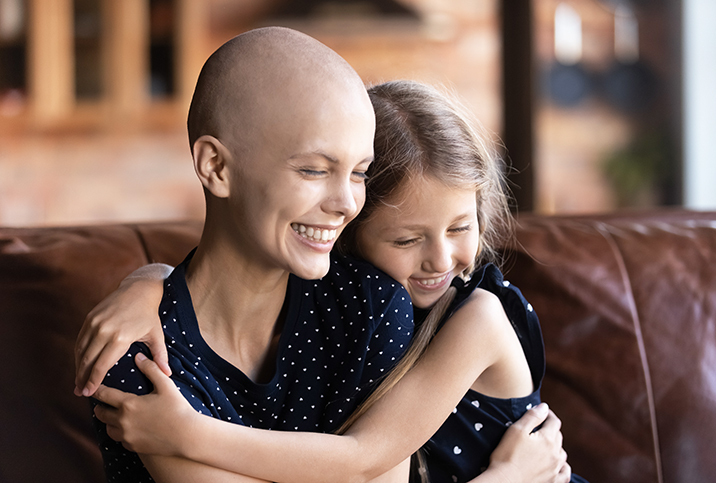Protecting Your Fertility During Breast Cancer Treatment

The decision to have biological children is deeply personal and isn't usually taken lightly. There will be events in your life that will lead you to question if you want children, when you want them and how you'll achieve that goal.
Breast cancer forces you to ask yourself big questions on how you'll live your life before, during and after treatment. The question of whether you're planning to have children will be something you'll need to answer on this journey so you can protect your fertility throughout the process.
Before breast cancer treatment
When you're diagnosed with breast cancer, it's important to ask your doctor how cancer will affect your life plans. Since breast cancer can involve intensive treatment that can impact your body's functioning, there's a chance your ability to become pregnant will be affected.
How far along your cancer is will determine how quickly you should act regarding your fertility and what course of action is right for you.
Questions to ask your doctor include:
- What options are there to protect my fertility?
- Is it possible to become pregnant after treatment?
- Will treatment cause problems during pregnancy? What about labor and delivery?
- Will I be able to breastfeed?
- How long after treatment should I wait to have children?
If having children is important to you, you'll want to explore the options on how to protect and preserve your fertility.
How breast cancer treatment affects your fertility
The type of treatment you receive will depend on how aggressive and progressed the cancer is. You may receive chemotherapy, radiation therapy, hormone therapy, surgery or a combination of the four. Each type of treatment has different impacts on fertility.
Chemotherapy
Certain kinds of chemotherapy drugs have been known to cause infertility. Ask your doctor about what drug you'll be receiving in your treatment.
Age also determines how chemo affects your fertility. Younger women have more eggs in their ovaries so they're less likely to experience menopause or infertility due to chemo. It's also possible that any infertility experienced will be temporary, but you'll need to talk to your doctor about possible side effects.
Radiation therapy
If the cancer has spread beyond the breasts, radiation therapy can be used to kill the cancer cells. It's important to note that any radiation to your pelvic area can hurt your ovaries, which can cause infertility. It can also cause scarring on the uterus, which can impact potential pregnancies. The higher the dose of radiation, the greater the chance of becoming infertile.
Hormone therapy
This therapy is a common treatment for breast cancer. Some hormone therapies might not cause infertility, but they can cause birth defects. Other therapies can either block or suppress the hormones in your body, which can send some women into early menopause. It depends on the overall treatment, but menopause due to hormone therapy can be temporary or permanent. If it's permanent, you most likely will not be able to become pregnant.
Surgery
The surgical removal of one or both breasts doesn't necessarily affect your ability to become pregnant. It can affect breastfeeding, however. But unless the cancer extensively spreads to other parts of your body, your fertility may remain intact. Should the cancer metastasize, or spread, to your reproductive organs, that can cause fertility issues. If your treatment involves the removal of the ovaries, fallopian tubes or uterus, pregnancy will be impossible.
What happens after?
After treatment, your health will continue to be monitored, to make sure breast cancer stays away.
As far as what you do about pregnancy after breast cancer treatment, it's entirely up to you. Maybe you want to have children as soon as possible or wait a few years until you're ready. Either way, it's important to ask your doctor what the safe amount of time is to wait before trying to have children.
After treatment, in certain circumstances, you can become pregnant without any sort of medical assistance. If not, there are many options available such as in-vitro fertilization, surrogacy and adoption.
If having a child post-breast cancer is important to you, it is often possible. Communicate with your doctor before, during and after breast cancer treatment to establish a plan.
















